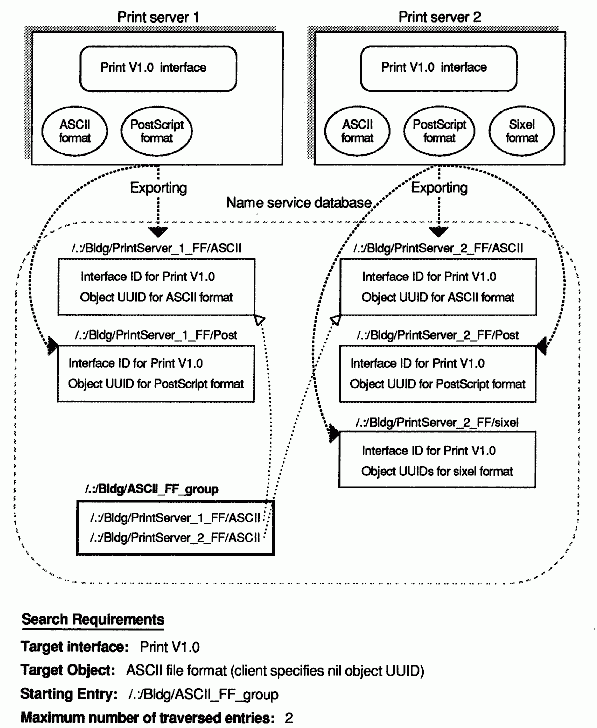
For some applications, exporting each object UUID to a separate server entry is a practical strategy. To avoid excessive demands on directory service resources, however, this strategy requires that the set of objects remain small. Applications with many RPC resources should usually have each server create a single server entry for itself and export the object UUIDs of the resources it offers to that server entry. For example, an application that accesses a different personal calendar for every member of an organization needs to avoid using a separate server entry for each calendar.
For some applications, however, you can use a separate server entry for each object UUID; for example, a print server application that supports a small number of file formats. Each server can create a separate server entry for each supported file format and export its object UUID to that server entry. The server entries for a file format are members of a distinct group.
To import binding information for a server that supports a required file format, a client specifies the nil UUID as the object UUID and the group for that format as the starting entry. The import operation selects a group member at random and goes to the corresponding server entry. Along with binding information, the operation returns the server's object UUID for the requested file format from the server entry. When the client issues a remote procedure call to the server, the imported object UUID correctly identifies the file format the client needs. the following figure illustrates this use of object UUIDs.
Resource Model: A Separate Server Entry for Each Object

Applications that use a separate entry for each object UUID need to use groups cautiously. Keeping groups small when clients are requesting a specific object is essential because an NSI search looks up the group members in random order. Therefore, the members of a group form a localized flat NSI search path rather than the hierarchical path. Flat search paths are inefficient because the average search will look at half the members. Small groups are not a problem. For example, if a group contains only 4 members, each of whom refers to a server entry that advertises a distinct set of RPC resources, the average number of server entries accessed in each search is 2 entries and the maximum is only 4. The larger the group, however, the more inefficient the resulting search path. For example, for a group containing 12 members, each of whom refers to a server entry that advertises a distinct set of object UUIDs, the average search accesses 6 entries and some searches access all 12 server entries.